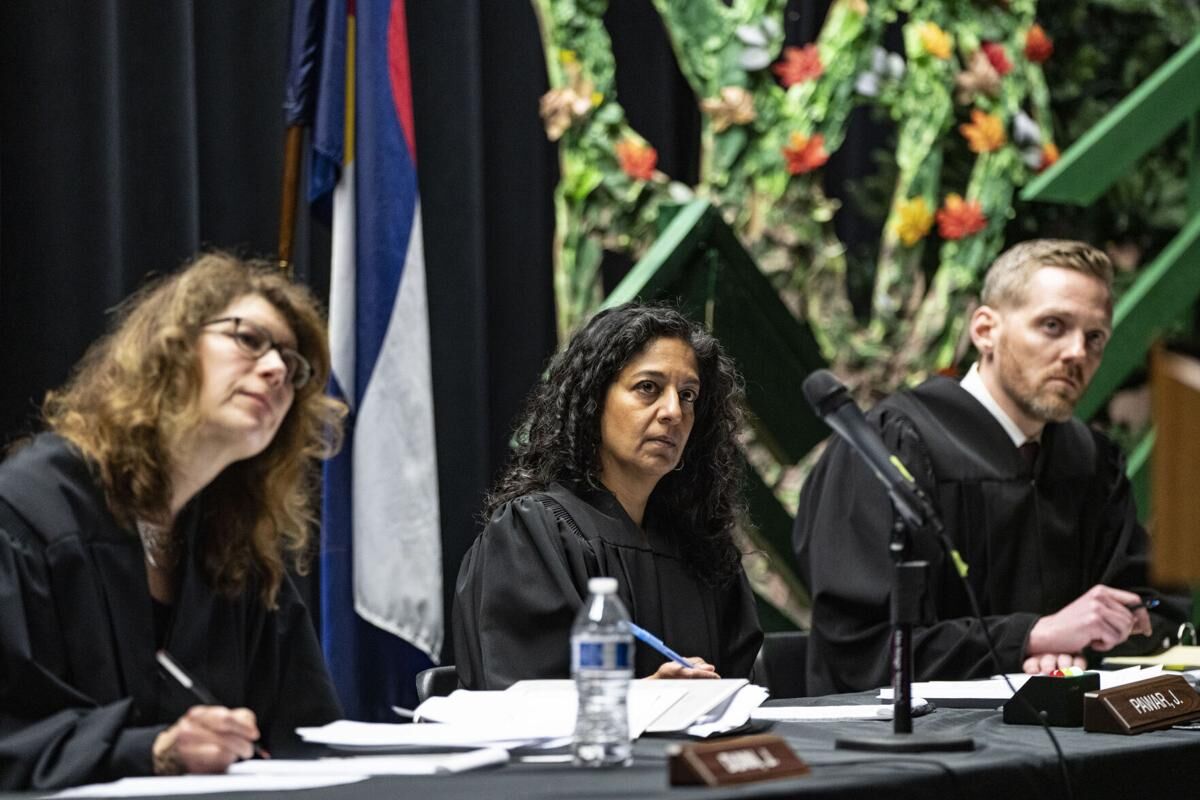Appeals court finds Wheat Ridge officer lacked probable cause to arrest defendant

Colorado’s second-highest court on Thursday concluded a Wheat Ridge officer lacked probable cause to arrest a man because the information suggesting criminal activity was too minimal to act upon.
Corporal Jeremy Schmitz was patrolling a truck stop off of Interstate 70 when he encountered a Toyota 4Runner that a database identified as stolen. The vehicle was locked and empty, so Schmitz went inside to review the surveillance video.
While in his vehicle, Schmitz saw the driver of the 4Runner exit the truck stop. He immediately drew his gun and arrested the driver, Daniel Orona. Police searched him and found bank cards and a driver license that did not belong to him.
Prosecutors charged Orona with criminal possession of a financial device and an ID document — but not vehicle theft. Jurors convicted him and he received a sentence of probation.
Before trial, the defense moved to exclude the evidence uncovered from the search, arguing Schmitz lacked probable cause to arrest Orona for any crime.
During a hearing, Schmitz testified that the database listing for the stolen 4Runner came from “Denver.” There was no additional information about the listing or its origin. Schmitz did not question Orona at all before arresting him and there were no outward signs of theft on the vehicle.
Jefferson County District Court Judge Lindsay VanGilder believed the fact that the vehicle was listed as stolen was sufficient to establish probable cause of a crime.
“Common sense considerations about what that means implies that no one has permission to have or be in the vehicle,” she said, “and so the court does find that at the time that the corporal had contacted and arrested Mr. Orona, there was probable cause that he was committing a motor vehicle theft.”
Case: People v. Orona
Decided: September 25, 2025
Jurisdiction: Jefferson County
Ruling: 3-0
Judges: Neeti V. Pawar (author)
Lino S. Lipinsky de Orlov
Katharine E. Lum
The government defended her reasoning to the Court of Appeals.
“Defendant was found in the exclusive possession of a recently stolen vehicle,” wrote Assistant Attorney General Austin R. Johnston. “Police must be able to act immediately on the basis of information in their databases. And unless that information later proves incorrect, an arrest based upon it must be upheld.”
Orona countered that Schmitz, at most, had grounds to detain and question him, but not to make an arrest.
“All it would take,” wrote public defender John Plimpton, “is for (an) officer to enter a frivolous listing and another to rely on it in making the arrest. This is not how it’s supposed to work, and it’s inconsistent with the law.”
A three-judge appellate panel agreed with him. In a Sept. 25 opinion, Judge Neeti V. Pawar wrote that longstanding U.S. Supreme Court precedent indicated the vehicle’s listing as stolen, by itself, did not supply probable cause to arrest Orona.
“Consequently, the sum total of the information known to police at the time of the arrest was that the 4Runner’s plates were listed as stolen in an unidentified ‘Denver’ database or list,” she wrote. “This limited information was merely an unexplained assertion from an unidentified source that the vehicle was stolen.”
Pawar added that prior court cases have required there to be further information about the reliability of a database or the facts known to an arresting officer supporting probable cause. But Schmitz had arrested Orona upon contact, with no further details generated.
“Because police discovered the bank cards and driver’s license as a direct result of these illegal acts, the court should have suppressed them,” she concluded.
The panel reversed Orona’s convictions, and the prosecution will not be able to use the allegedly stolen items in any second trial.
The case is People v. Orona.











